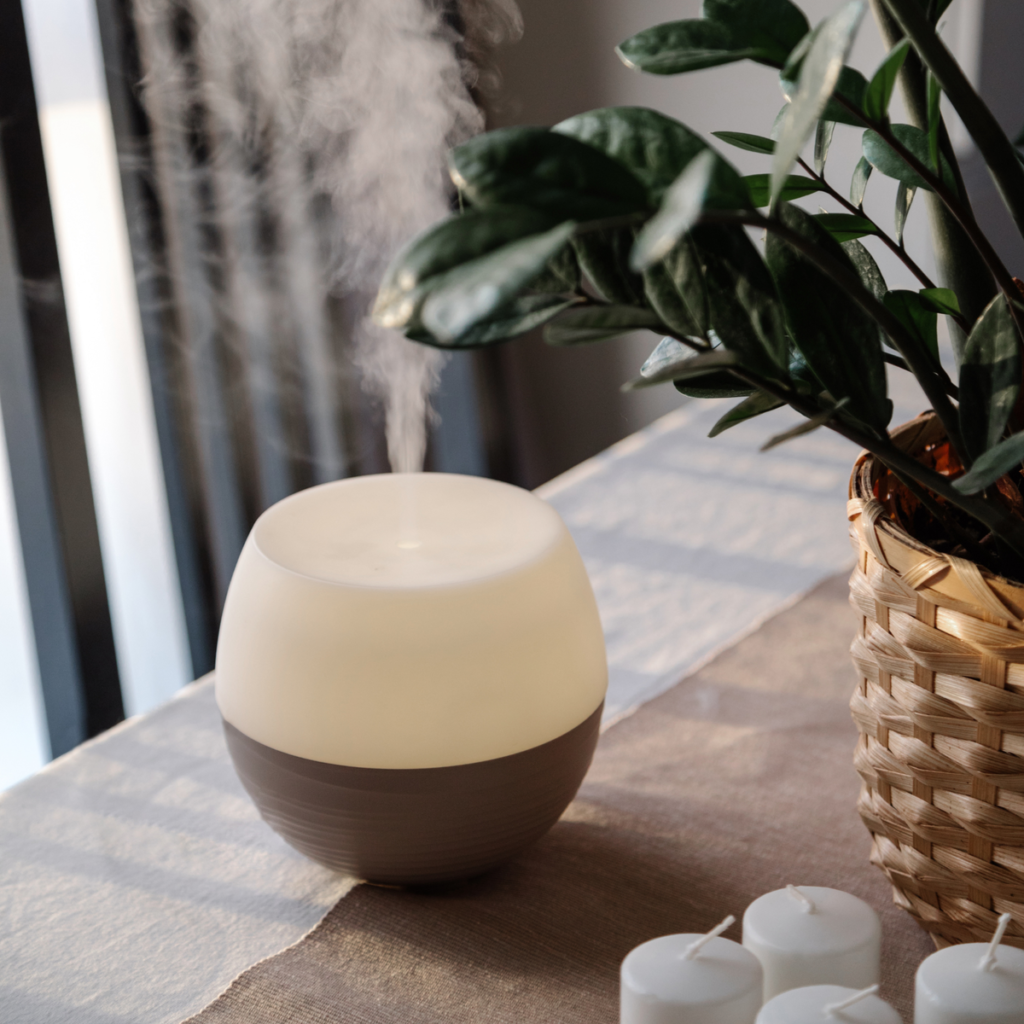Winter has arrived which means many of us have switched on our dehumidifiers to combat damp and condensation in our homes. Dehumidifiers are easily one of the most popular appliances here in the UK, but what does a humidifier do?
Not to be confused with one of the best dehumidifiers, the best humidifiers work a little differently. Humidifiers increase humidity in a room to improve air quality and reduce allergies.
This time of year often means we are more susceptible to cold flu – especially when the kids bring various bugs home from school. To keep us feeling on top form, a humidifier could be a helpful tool to make your home a healthier place for your family.
What does a humidifier do?
A humidifier adds moisture to the room to prevent dry air which can irritate your body. They’re opposite to a dehumidifier which is designed to suck the moisture out of the air.
‘Humidifiers release water vapour or steam into the air, effectively boosting moisture content. This can be particularly beneficial during colder months when central heating systems dry out the air, or in areas where air conditioning units are frequently used,’ says Saddat Abid, CEO of Property Saviour.
It is also beneficial during winter as the colder air is drier than warm air.
‘Cold air is low in water vapour and naturally drier than warm air. If you keep the windows open in winter and generate low amounts of moisture through daily activities, the air in your home may become uncomfortably dry. This can be rectified with a humidifier, which introduces water vapour into your home to increase its relative humidity,’ says Dr Jonathan Kirby, Mould Expert at Dryzone.
Having too low humidity can damage your home causing wood to warp, shrink or crack and wallpaper can start peeling. The most noticeable effects, however, are on your health.
Dry air can increase your chances of catching airborne viruses like colds or flu, which is why humidity is important. While a dehumidifier is helpful if your home is too damp, your humidifier can produce several health benefits.
It can prevent dry skin and lips, irritated eyes, respiratory problems, allergies, frequent coughs, nosebleeds and sinus headaches.
How humid should my house be?
‘While humidifiers offer numerous benefits, correct usage is paramount. Overuse can lead to excessive humidity, promoting mould and dust mite growth,’ warns Saddat.
While your home should have humidity, it shouldn’t be too humid as this can cause damp, mould and condensation.
‘The ideal indoor humidity level ranges between 30% and 50%. Using a hygrometer to monitor humidity levels ensures optimal use,’ says Saddat.
In summer, the humidity levels of your home can sit between 40% and 60%. Installing a hygrometer is an easy way to take readings of the humidity in your home by testing the amount of water vapour in the home.
If it’s too high, you may notice problems such as condensation and would need to use a dehumidifier, whereas if it’s too low, you could be susceptible to illness and would benefit from a humidifier.
Thermopro Tp49 Small Digital Hygrometer
This hygrometer refreshes every 10 seconds to give you an accurate reading of your home’s humidity levels.
What type of humidifier should I get?
When purchasing a humidifier there are a few things you are a few things you should be aware of when choosing the right humidifier for you.
Firstly, you should choose between getting a cool mist and a warm mist humidifier. Cool mist humidifiers emit room-temperature air. They are considered to be more energy efficient and can help with sore throats and dry skin. Warm air humidifiers heat water to release steam which can feel like it provides more instant release. They do carry more risk of burns so may not be the best option if you have young children.
You should also consider the size of the humidifier. A small or portable humidifier is suitable for one room but if you need to boost the humidity throughout your whole home, a whole-house humidifier can cover multiple rooms.
Humidifiers can help with snoring and some have additional features such as night lights, which can make them a good choice for bedrooms.
Vicks Vul565 Cool Mist Ultrasonic Humidifier
With a 4.5l tank, this cool mist humidifier is ideal for larger rooms. You can even direct the nozzles to control the stream of mists.
Duux Tag Quiet Air Humidifier
At Ideal Home, we found this humidifier to be the most energy efficient. It has 10 hour usage and covers up to 30m2.
Vicks Warm Mist Humidifier
Warm air humidifiers kills the bacteria in the mist before it is released resulting in cleaner air.
A humidifier can give your health a much needed boost over winter. However, you should it’s important to evaluate the humidity of your home regularly as if your home is too humid, it can cause damp, mould and compensation.
Read the full article here

